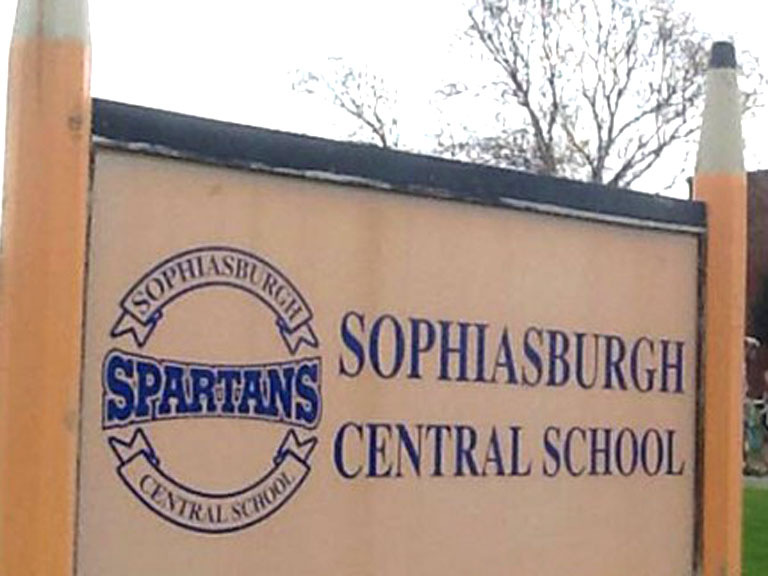County News
Safe schools

Uneventful meeting brings an end to school closure drama
The boardroom at the Ann Street head office of the Hastings Prince Edward District School board was overflowing Monday night, with some waiting outside in order to hear board trustees vote on the final recommendations from the accommodation reviews that have dogged the entire school year.
In November, when the proposals were initially revealed to the public, there was a sense of doom, of eventuality, amongst the residents of Prince Edward County. Many were shocked to hear the board wanted to close half of the County’s schools. Some worried that the proposal provided would be set in stone, and an accommodation review process set in motion by the board would be ineffective in bringing about a better solution for the community.
The final recommendations were not perfect. They did not put to rest concerns about a Kindergarten to Grade 12 school. Beginning in September of 2018, Prince Edward Collegiate Institute will be the first such school under the HPEDSB.
But it was clear that trustees did listen.
Kente and CML Snider schools were left off the final recommendations. Those two schools will remain open for the time being, until a new process that involved Massassauga-Rednersville, a feeder school for Kente, can begin. That will be another year.
It’s something Janice Maynard, Ameliasburgh councillor and community member of the Kente Accommodation Review Committee, has been looking forward to hearing, and the reason she attended the final board of trustees meeting.
“It’s been a long and arduous process, and at the end of the day, we were able to keep both CML and Kente open,” says Maynard. “I just felt that I wanted to see the final act to this play. Just in case something was to happen.”
Nothing did happen. The trustees discussed Prince Edward County schools for five minutes, approving all final recommendations without discussion.
The transition from Pinecrest and Queen Elizabeth into PECI will be slowed down, with only Grade 7 and 8 students joining the high school in the fall of 2017, giving an extra year for the school to properly prepare for younger children.
Most notably, Sophiasburgh Central School was given a reprieve.
The community in Sophiasburgh had expressed great concern about that school closure. Although Pinecrest students could all easily transfer from Bloomfield to Picton or Wellington, Northport and other hamlets in the County’s northeast are more remote.
The school is also a centre of the community, something members of Sophiasburgh Central’s ARC had argued should be a consideration.
So they developed a proposal to turn the school into a community hub. It’s not unheard of—other schools in the province are connected to health hubs, libraries or community centres—but it’s not common, either. The proposal required a little imagination.
So much so that when an updated proposal came from the board following the ARC process, it left the proposal out entirely.
With appeals from Mayor Robert Quaiff, the County’s libraries and food and agriculture businesses in Sophiasburgh, along with the continued pressure from parents, trustees rejected the board’s second proposal, instead allowing the community group 11 months to gather finance and prepare a completed business plan for a Sophiasburgh school, food centre and community hub.
Michael Farrell, whose oldest child attends Sophiasburgh Central School, was one of the school’s ARC members and a leader for the proposal. He says while the timeline is short, it will come together, and possibly even be implemented before the deadline.
“We were asking originally for 18 to 24 months to build the model and then prove it,” says Farrell. “What we’d like to do is get it happening and actually start integrating… we’ll be working through the summer. We already are working on it.”
Farrell is proud of the accomplishment, although for his group, the work is just beginning.
“We’re up for the challenge. The wheels are already in motion. It’s not just a vision—we’ve got a lot of people behind this idea from the community level right up to the Ontario government level, and now we’ve got to let people know that all that great support has got to come to fruition,” Farrell says.
The reprieve, and the permission the trustees have given Sophiasburgh Central to experiment, has bolstered Farrell’s optimism.
“You’re starting to see through this ARC process,” says Farrell. “I feel that when we’re in contact with other communities around Ontario, there are glimmers of hope and optimism coming though in different districts as well. There’s an openness to experiment, there’s some talks from the highest levels of some permissiveness to experiment—that can’t not be a good thing.”

Comments (0)